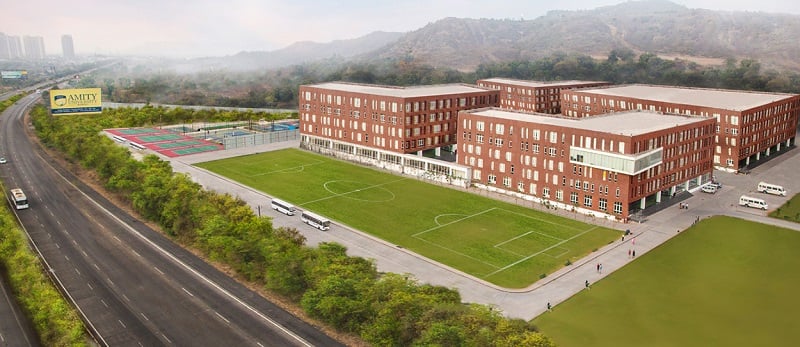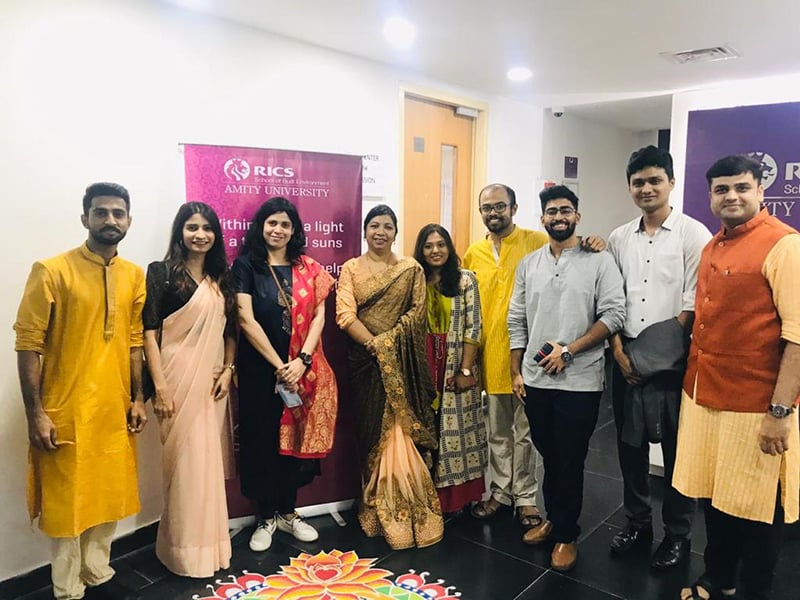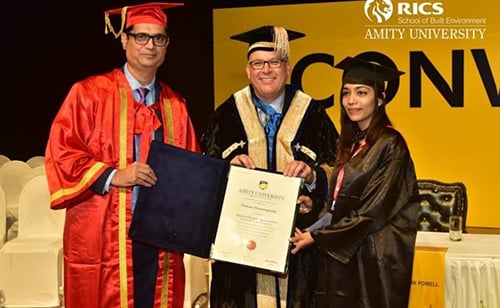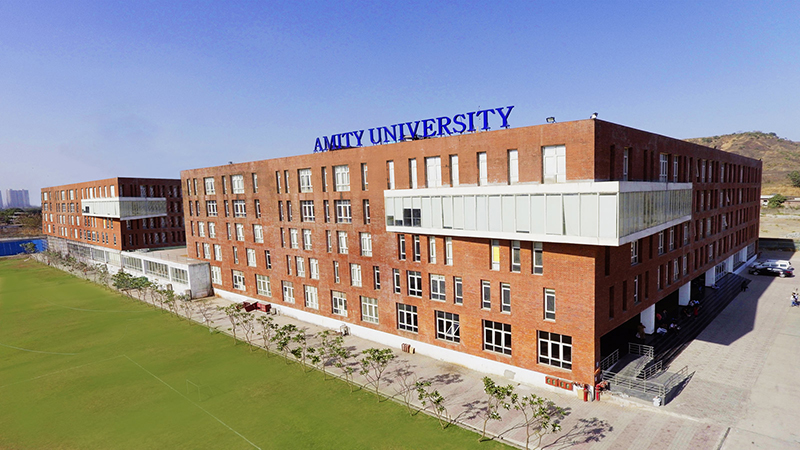RICS School of Built Environment (SBE) provided selected students an opportunity to participate in Urban Thinkers Campus titled ‘’The Resilient Cities We Need”. It was an urban lab cum on-the-spot competition organised by the National Institute of Urban Affairs (NIUA) for providing varied stakeholders a platform of discussion, including youth to represent for upkeep of urban spaces, strengthen knowledge for resilience requirements for an urban area, exchange ideas and participate in the development of SDG’s. “Till date, this has been one of the most wonderful experience, and a chance to represent at national forum during my Management degree course with specialisation in Real Estate & Urban Infrastructure”.
Experts working in the urban sphere in an informative interaction shared views on India’s needs and factors for building resilient cities across the country. It gave me immense exposure and alignment towards the development of resilient cities that the world surely requires now. My deep gratitude to RICS -School of Built Environment, Noida and National Institute of Urban Affairs for enriching me with information to build on for my future work. Also, a thank you extended to other four students, selected from RICS SBE streams of MBA in Construction Project Management (CPM) and Construction Economics and Quantity Surveying (CEQS) for a shared perspective and camaraderie that we developed, it would live with us lifelong.
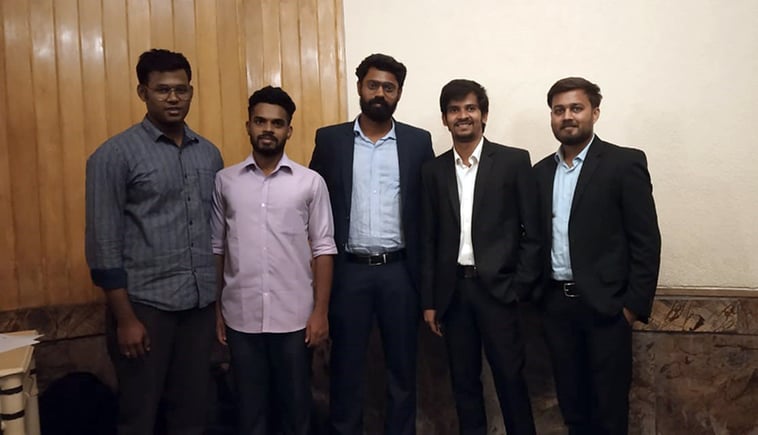
Competition format did place us in different groups and participants were divided among seven groups, each group with a maximum of four people. Problem statement brief of the competition was to ideate resilience strategies for a neighbourhood in a metropolitan city, which being recently incorporated within the municipal boundary limits. This land had problems associated with it such as urban flooding, decrease in the groundwater table, unscientific waste management techniques and spread of vector-borne diseases etc. Other aspect informed was concerning to the vision of this subject city that was to develop it as an Information Technology (IT) city economy. Strategies to overcome challenges and mitigation was meant to be delivered with forty-five minutes.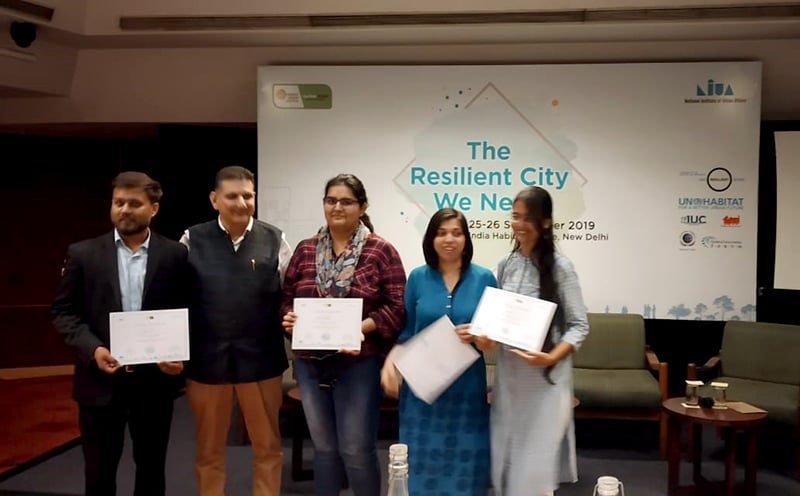
My group comprised students from School of Planning and Architecture (SPA), one each from New Delhi (Ms Poonam Wadekar) and Bhopal (Ms Namita Verma), one from TERI School of Advanced Studies (Ms Renuka Kulkarni) and with me as a Management student. Diversity and various understanding perspectives in the group helped us win 1st Prize in my opinion. Besides, it gave me food for thought regarding the importance of various stakeholder outlooks in framing strategies. Our recommendations included developmental aspects of sustainability like green walls along open drains to prevent urban flooding, wetland vegetations for groundwater recharge and utilisation of excesses of urban flows of water, bio-mining of existing open land parcels, skill development strategies with local community, adoption of succinct community structures like transit-oriented development, decentralised waste management system, and alike. Our highlight was that we framed our strategies in short, medium- and long-term manner and laid emphasis on the most vulnerable groups. Along with this, we structured our views in tandem with seven important qualities of a resilient city and incorporated as learning based on 100 resilient cities pioneered by the Rockefeller Foundation.
My key takeaway from this experience is partaking in a mixed group, forming good contacts amongst professionals contributing to urban space development and learnings achieved on this matter. It is a matter of pride for me to be a prize winner and award recipient from none other than the Director of NIUA. I hope to continue my contribution and impart this learning further to others. Going ahead, I look forward to being a part of the global forum that would be conducted by the United Nation (UN) in Abu Dhabi next year as a culmination of varied national events. This means an opportunity to become a part of the 1M 2030 program of the Global Challenge Forum Foundation. This experience is cherished and thank you to all my teachers at RICS SBE who helped me prepare for the same.
Nikhil Jaju
Pursuing MBA Real Estate & Urban Infrastructure(2018-2020)
Linkedin Profile:
https://www.linkedin.com/in/nikhil-jaju-09b453106
RICS SBE is an industry-led institution that aims at providing good education and tremendous placement opportunities to the students. The school has exchange programs with some of the leading universities around the world, such as the University of Salford, UK. It is a brilliant opportunity for individuals considering international exposure as they also get to be a part of the Asian Cities Program, wherein they get the opportunity to work with some of the top universal firms across several cities in Asia.
Pre-registrations for 2020 now open


 Lead Generation Packages
Lead Generation Packages Premium Branded Content
Premium Branded Content Interactive Content
Interactive Content Nurturing Funnels
Nurturing Funnels Technology Consulting
Technology Consulting Hubspot Setup & Training
Hubspot Setup & Training

